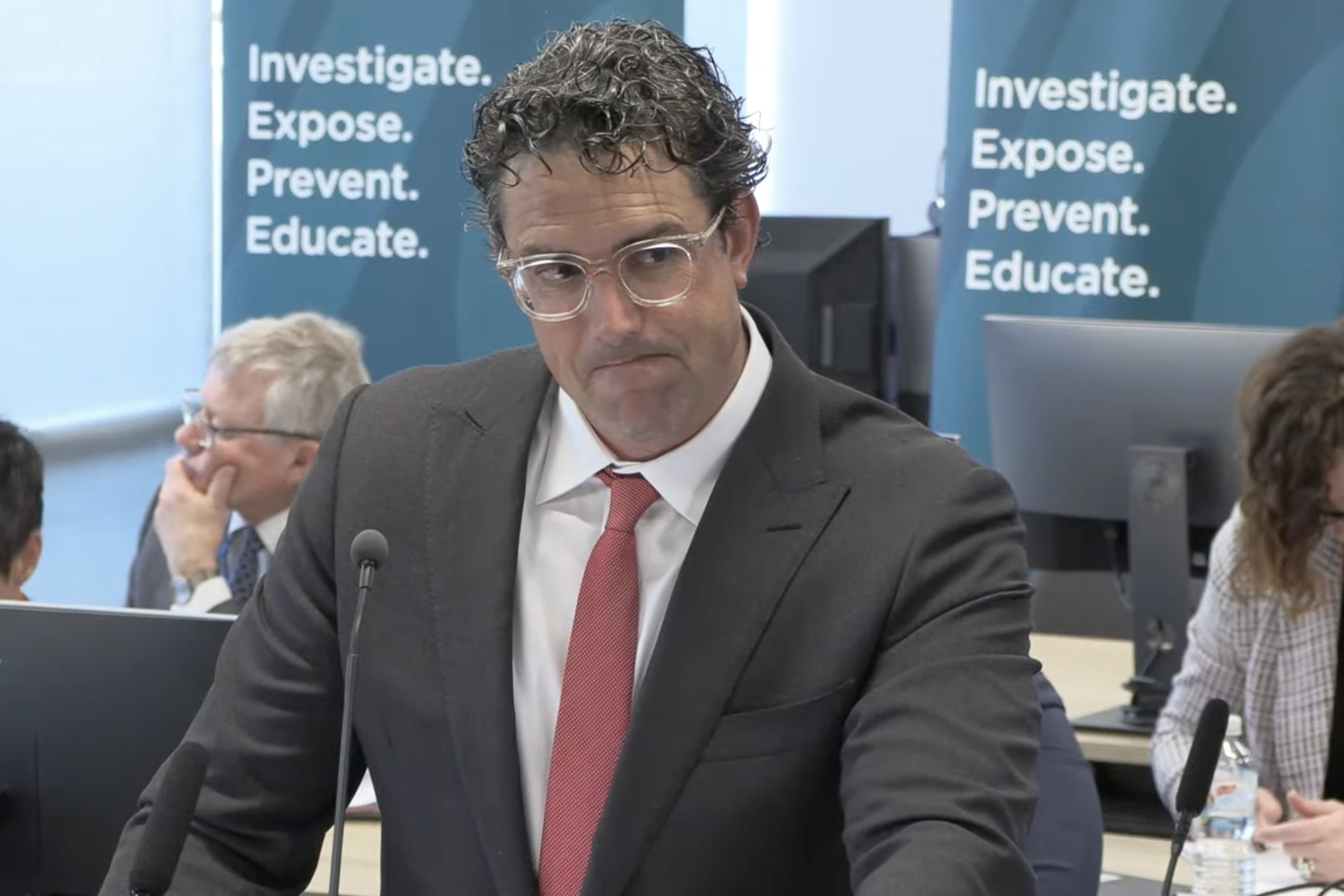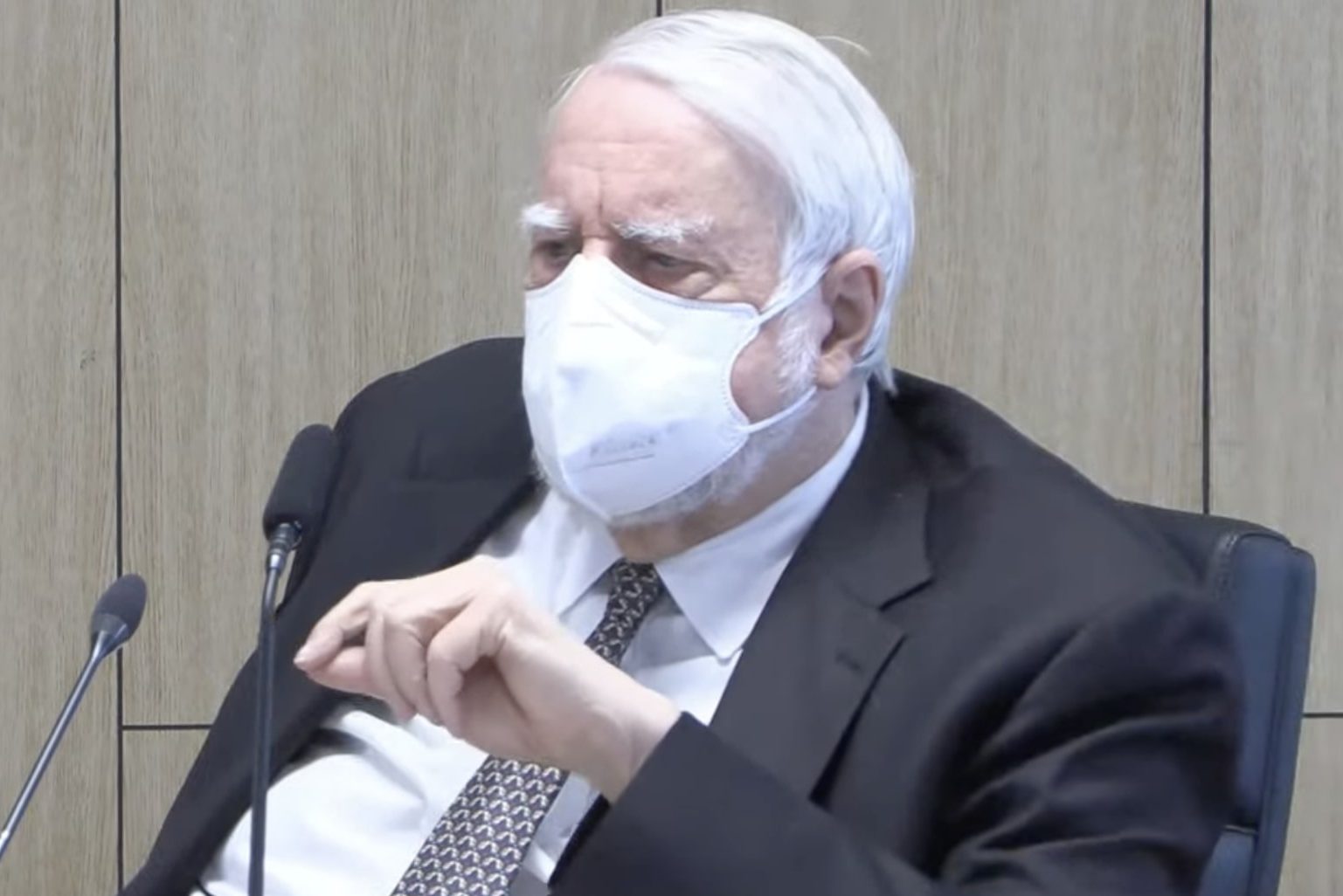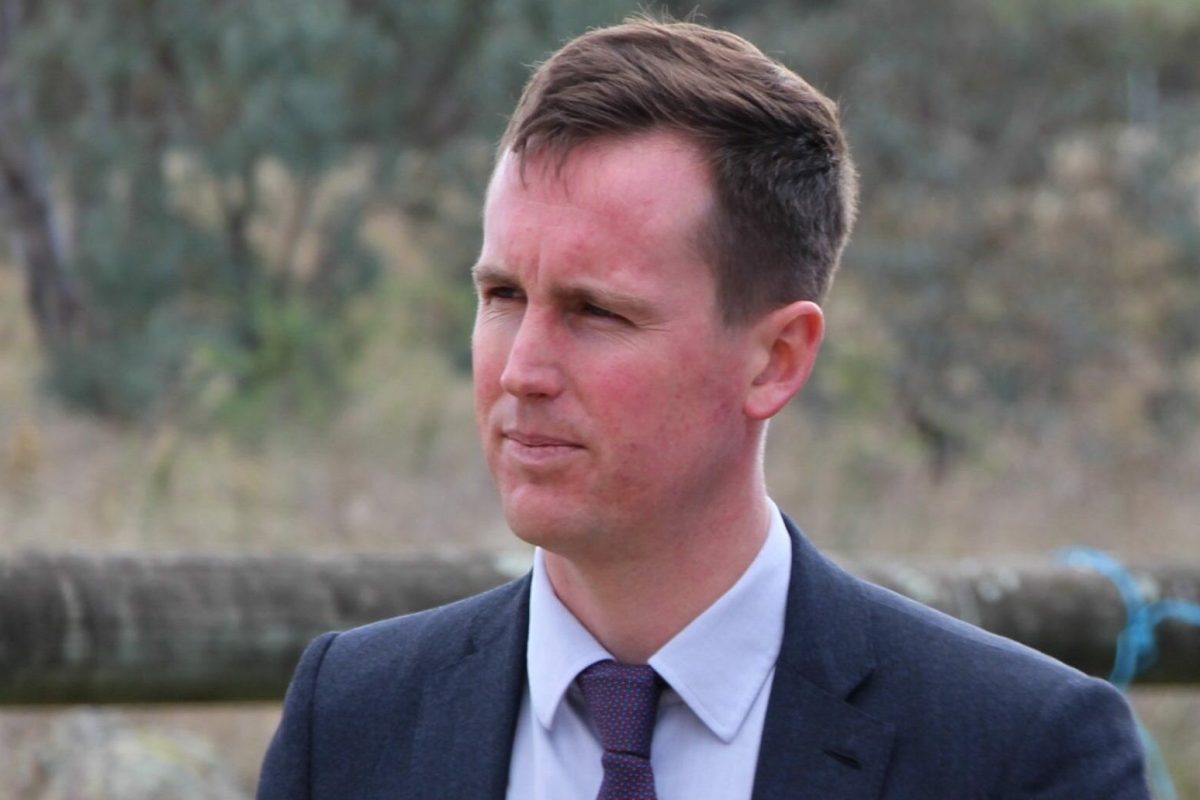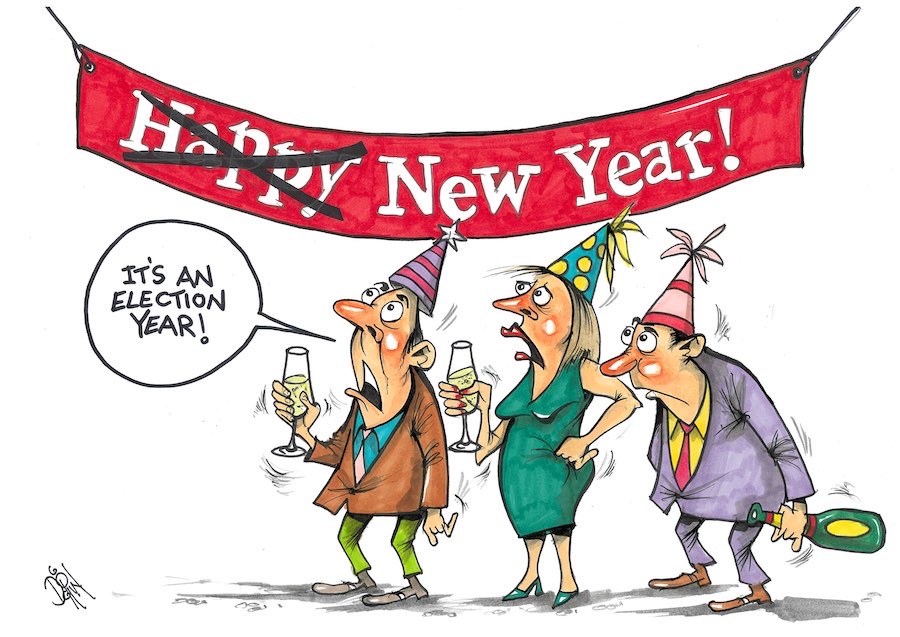
The ACT Integrity Commission has started further public examinations as it investigates how and why the tender for building works at Campbell Primary School was not given to the recommended tender applicant, local firm Manteena, but instead went to Lend Lease. Here legal columnist HUGH SELBY reviews Wednesday’s revelations.
WHO doesn’t like some excitement on a dull day? Wednesday morning’s tedious public hearing by the ACT Integrity Commission became exciting right on the break for lunch.

Unexpected fireworks by the counsel for several “interests” suggested that the afternoon session would be full of surprises. The atmosphere was changing. Where it had been dull, so dull, there were signs it might light up.
And that’s what happened. Without warning, counsel assisting Callan O’Neill suddenly attacked the sole witness, so far, John Green (a pseudonym to protect his identity).
This was followed by the Education Minister Yvette Berry’s chief of staff’s counsel picking up that attack where counsel assisting left off.
After several days of hearing (we don’t get to see him) Mr Green carefully, quietly, convincingly explaining the whole tender process and his part in it, we are now confronted with him admitting that he was not truthful, even when under oath, to the auditor-general’s inquiry.
We are invited to think that his claims of the involvement of Josh Ceramidas, Ms Berry’s chief of staff, are untrue.
Those claims will be continued, perhaps strengthened, perhaps not, on Thursday morning.
What follows is a commentary on how it all came out.
IN Tuesday’s article I pointed out that because of too little information we, the interested public, could be misled by following the questioning.
Wednesday proved that point.
Counsel assisting, through several days of questioning, had presented Mr Green as reliable, honest and comprehensive.
Then, without warning, he attacked his own witness, focusing upon his lack of honesty even when under oath.
What case theory is counsel assisting following? A key issue is whether the decision to award the contract to the higher tenderer was, or was not, influenced by anyone within the Education Minister’s office.
Given all the private examinations, the commission might have a view on that issue. If they do, then it should be shared with any witness for whom it is relevant.
If they don’t have a view yet, then everyone (including us, the observers of the public examination) should be told: “We are looking into this issue and your answers will help us to resolve it”.
The role of “counsel assisting” is a test for any advocate. It requires not just the skills in asking different types of questions (such as open, closed, inviting or cornering), but also the ability to manage a witness in a way that is fair.
A dog on a leash that is patted by the leash holder does not expect to then be kicked. Likewise, a co-operative witness does not expect to be rewarded with an unexpected coup de grace, followed by another attacker.
If the commission intends to rely upon Mr Green’s evidence, then the topic of his lack of truthfulness to the auditor-general should have been raised and dealt with much earlier in his evidence – sandwiched between other, positive material.
If the commission does not believe Mr Green’s account to them and to us, then he and we should have been informed much earlier.
If the commission believes that the views of observers are irrelevant then these “public examinations”, insofar as we, the public, can watch them should cease. They are counter-productive to public trust in the commission’s work.
What makes for a good interview that brings understanding
A public examination is the icing on the cake, the cake being all the evidence gathering and discussion among the investigative team of what that evidence shows, that has occurred before the public questioning.
Spreading that icing brings advocacy skills to the fore. In particular, will the questioning and the answers persuade all listeners to reach correct conclusions?
Persuasion requires sharing with the listeners the journey on which they are to be taken and its destination.
That’s easy enough to do but most advocates don’t do it. It hasn’t been done in this public examination, at an avoidable cost to the witness, and to the interested public, of accurate understanding.
The eliciting and testing of evidence in any hearing is just another form of interview. Most of us are familiar with job interviews, news interviews, celebrity interviews and interviews with doctors and nurses.
In our daily experience, interviews are usually time limited: we expect the interviewer to get to the nub of the matter quickly and then to tease out necessary details.
The topic of these short interviews is usually obvious from the context. When you tell your doctor your signs and symptoms you expect them to focus on that information to give you the best advice.
If you are applying for a job or a promotion then there are clear signposts for you and the interviewer about the topics that should be covered during your meeting.
As someone being interviewed it’s natural to have some anxiety about what will happen. Examples include,”‘Will I present well?”, “Will my answers be understood?” and “Will my answers be accepted?”
Given those natural anxieties the interviewer, who controls the format of the interview, should anticipate them and strive to allay them.
Lawyers asking questions at a hearing are interviewers. Their focus may be on eliciting information that fills out an understanding of past events.
The witness and the lawyer are developing a narrative together. This is typical of a lawyer questioning their own witness in examination-in-chief.
Generally, given its aims, one expects in examination-in-chief the tone between a lawyer and their own witness to be calm, supportive, even friendly.
Alternatively, the lawyer’s focus may be on showing that the witness’ recollections are faulty, incomplete or contrived. This is typical of a lawyer questioning a witness called by another party.
Bearing in mind that a guideline for cross-examination is “never be nasty until the benefits of being nice have been exhausted” the tone between lawyer and target witness is likely, when the lawyer is good, to vary according to the needs of the cross-examination.
Counsel assisting, given the inquisitorial nature of their task, need to be adept with all these forms of questioning and to be able to share with the witness and the audience what they are about to do.

Please, please tell us the topics
Whatever the tone between lawyer and witness there is no downside for the lawyer in sharing with the witness, the decision maker/s, and any observers (such as the public observing the audio-visual), the topics that will be explored during the questioning.
Topics, like headings in our “CityNews” articles, help everyone to understand what is being talked or written about, and make clear, again to everyone, the logical development.
There has been no sharing of topics in this public examination, not on the previous hearing days, not today. Until… this spring Wednesday afternoon, counsel assisting said to Mr Green: “The next topic I need to raise with you”.
Hallelujah! Will this herald a new age, or was it a one off?
Previously, Callan O’Neill (counsel assisting), clearly familiar with the material, has taken Mr Green from one document to another and then another. Chronology seems to be the only guide. It has been, for most of the time, a long, hard, repetitive, boring slog.
Perhaps Mr Green has been told that he is a helpful witness, not a person suspected of corrupt conduct. It’s hard to know from this chronological questioning.
That uncertainty was put to an abrupt end, so abrupt that I wondered how Mr Green must have felt.
How about this unexpected kick in the guts?
Out of the blue, (at 2.20pm), counsel assisting suddenly accused Mr Green of making up (ie, fabricating) the direction from Katy Haire, Director General at ACT Education, that building company Manteena was not to get the Campbell Primary School contract to get out of his own devious misconduct.
Please bear in mind that I have heard not a single question to Mr Green as to what he would gain by awarding the contract to Lend Lease if that was a “frolic of his own”.
Mr Green was accused of giving inaccurate evidence (when he was under oath) to the auditor-general in an earlier investigation. He agreed that he had done so, to support “the corporate line” (of the Education Department and, possibly, the Education Minister’s office).
As a general guideline an advocate does not finish their questioning of a witness with material that gives a later, oppositional advocate, a free kick to start their questioning. But this is what counsel assisting did.
The commissioner disallowed a question from counsel assisting that asked the witness why he should now be believed. The commissioner said he would be guided by the evidence; the question was not helpful.
During the morning session Mr Green recounted how he met with Manteena representatives to give feedback on why they were not successful. They met at the Bittersweet Café in Kingston.
In a rare light moment Mr Green told us that this café was chosen because it’s very good, not for its name.
Counsel for the chief of staff questions Mr Green
Counsel started off where counsel assisting had finished: with the inaccurate, sworn evidence, given by Mr Green to the auditor-general’s team. That’s no surprise. To have started any other way would have been to have looked a gift horse in the mouth.
Mr Green agreed that he had prepared for his questioning by the auditor-general’s team. He agreed that he knew he had to tell the truth, and that he was told that at the start of the questioning.
The Commissioner pointed out that his evidence was more than misleading, it went to the very heart of the transaction (that was the awarding of the contract to Lend Lease). Mr Green agreed.
Mr Green agreed that he not only had the chance to correct his evidence on the transcript, but also to correct the auditor-general’s draft report. He did neither.
Counsel then took Mr Green to a part of that auditor-general interview where Mr Green states that neither the minister nor her staff had directed him on the decision.
Asked: “Was there any influence, undue influence on the process on you, or participants in the process?”, Mr Green told the auditor-general’s team, that there wasn’t.
Mr Green admitted that in the interview he did not mention any conversation with the minister’s chief of staff, Mr Ceramidas.
The chief of staff’s counsel has had access to the private examinations of Mr Green. He referred in his questions to what was said in those examinations.
Mr Green did not back down from his earlier claims (that we heard on the hearing days last month) that the chief of staff had given him (and others) a direction that Manteena was not to get the contract.
Counsel cut the witness off. Sad. Save for the witness who answers unresponsively ’tis better to listen, because what is said can fuel later questions.
Before Wednesday afternoon’s questioning, the commission did not intend to call Mr Ceramidas to a public examination.
It’s now clear from this questioning that the chief of staff denies telling Mr Green not to give the contract to Manteena. This creates a direct conflict between the evidence of these two men. Will that be resolved by the chief of staff being called to a public examination so that he can be questioned by Mr Green’s counsel?
Mr Green’s counsel made an objection about aspects of this questioning. He premised his objection by noting that the chief of staff was not to be called to public examination. If he is not called, then Mr Green’s counsel cannot question him.
His calling becomes more likely as Mr Green has, in several answers, made it clear that he followed the “corporate line” for as long as he could. For him the “corporate line” meant the directorate and the minister’s office. He could no longer do that once he was being questioned by the Integrity Commission.
“I should have made it clearer to the auditor-general’s team that I was not the ultimate decision maker” (said in private examination).
We were then taken to Mr Green’s recollections that he understood the instruction was from the chief of staff, not from the minister.
There the publicly available information ended for the day. The hearing went into a closed session.
Thursday promises to be interesting.
“CityNews” legal commentator and former barrister Hugh Selby’s free podcasts on “Witness Essentials” and “Advocacy in court: preparation and performance” can be heard on the best known podcast sites.
Who can be trusted?
In a world of spin and confusion, there’s never been a more important time to support independent journalism in Canberra.
If you trust our work online and want to enforce the power of independent voices, I invite you to make a small contribution.
Every dollar of support is invested back into our journalism to help keep citynews.com.au strong and free.
Thank you,
Ian Meikle, editor





Leave a Reply